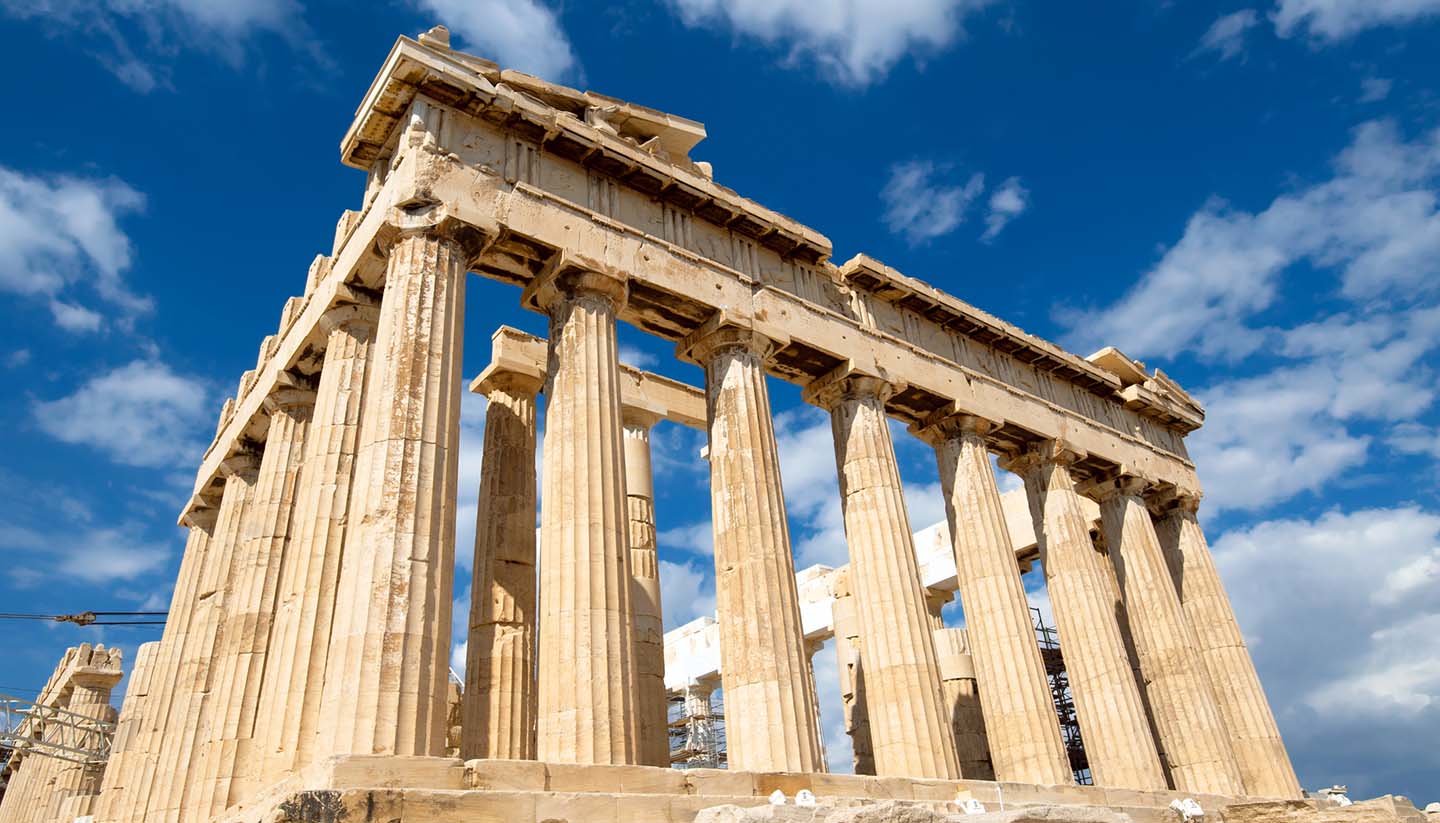Athens History
Inhabited for at least 5,000 years, Athens is one of the oldest cities in the world. By the 5th century BCE, the developing Athenian state had launched democracy, which saw it become the cultural centre of Western civilisation.
Named after the goddess of wisdom, battle strategies and more, the city-state of Athens came to dominate Greece after defeating Persian invasions in 490 and 479 BCE. Under Pericles from 461 BCE, the construction of the icons of Ancient Greece began, including the Parthenon in Athens and Temple of Poseidon at Sounion. In this Golden Age, drama and the arts also flourished, and Socrates conceived the foundations of Western philosophy.
Despite echoing through the ages, Athens’ relatively brief dominance over Greece was challenged by Sparta and the Peloponnesian War followed for nearly three decades until 404 BCE. In 338 BCE, the Ancient Kingdom of Macedonia seized Athens, ruling it until the Roman conquest in 2nd century BCE. The city maintained its prestige as a centre of learning under the Romans.
More than five centuries of Roman rule were followed by that of the Byzantines, under whom it declined. Later, there was medieval prosperity in the 11th and 12th centuries – until Latin rulers conquered it during the Fourth Crusade in 1204.
Next came the Ottoman conquest in 1458. Although the empire wanted to preserve Athens’ ancient marvels, a litany of accidents and attacks led to the destruction of many.
Greece finally gained independence in 1832, and Athens was named capital. The King employed architects to redesign the city and erect impressive neo-classical buildings, such as the Royal Palace, today the Greek Parliament.
Athens grew rapidly through the 19th century, while Greek refugees from Anatolia flooded the city in 1920s after the Greek-Turkish war. Athens suffered greatly during the World Wars. Years of struggle between left and right in the post-war era led to a 7-year military dictatorship known as the Junta until 1974.
In the late 20th century, Athens developed into a truly modern city and in 2004 it hosted the Olympic Games. Since the eurozone crisis from 2009, it became the centre of widespread protests against the government, leading to civil unrest.
Did you know?
• When Prince Otto of Bavaria became King of Greece in 1832, he adopted Greek clothing and used the local spelling of his name, becoming King Othon.
• Although the Romans respected Athens’ legacy, General Sulla sacked the city in 87 BCE, causing much destruction. He did, however, order that the main monuments were not harmed.
• During WWII and German occupation, the Nazis flew the swastika flag from the Acropolis. Its removal by Greek left wing politician, Manolis Glezos, sparked the Greek revolt.


